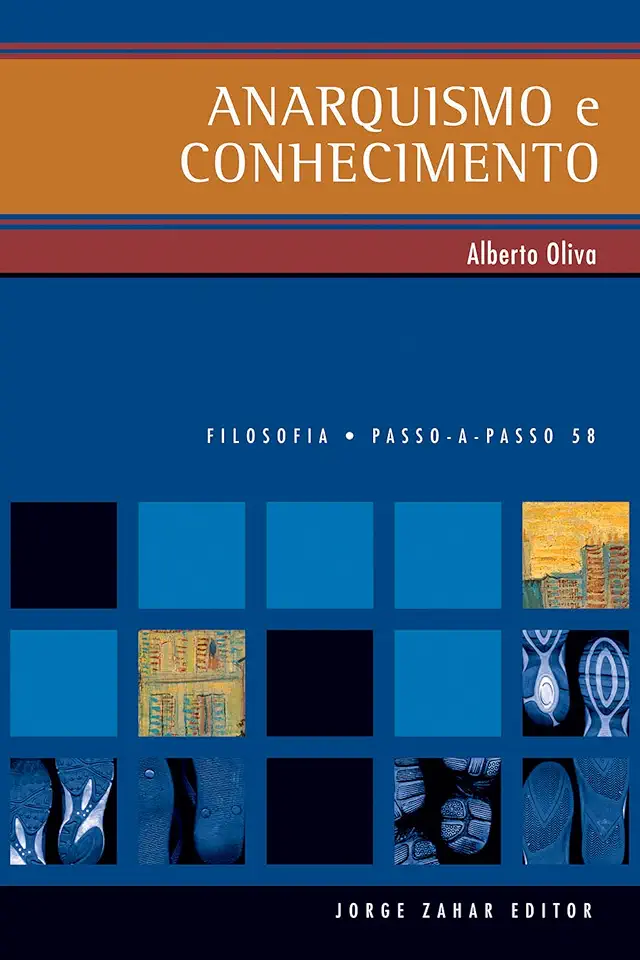
Anarchism and Knowledge - Alberto Oliva
Anarchism and Knowledge: A Philosophical Exploration
Introduction
In "Anarchism and Knowledge", Alberto Oliva presents a comprehensive and thought-provoking exploration of the relationship between anarchism and knowledge. Oliva argues that anarchism is not simply a political ideology, but also a philosophical approach to understanding the world and our place in it. He draws on a wide range of sources, including anarchist theory, epistemology, and social theory, to develop a unique and compelling perspective on the nature of knowledge and its implications for social and political change.
Anarchism as a Philosophical Approach
Oliva begins by arguing that anarchism is not simply a set of political principles, but a way of thinking about the world and our place in it. He draws on the work of anarchist thinkers such as Mikhail Bakunin, Pierre-Joseph Proudhon, and Emma Goldman to develop a philosophical framework for understanding anarchism as a critical theory of power and knowledge. Oliva argues that anarchism is fundamentally opposed to all forms of domination, including the domination of one person or group over another, as well as the domination of nature by humans.
Knowledge and Power
Oliva then explores the relationship between knowledge and power, arguing that knowledge is not simply a neutral tool that can be used for good or for evil, but is itself a form of power. He draws on the work of Michel Foucault and other post-structuralist thinkers to argue that knowledge is always produced within specific social and political contexts, and that it is always used to serve the interests of those in power. Oliva argues that anarchism offers a unique perspective on the relationship between knowledge and power, by insisting that knowledge should be produced and used in a way that is liberatory and empowering for all.
Anarchism and Education
Oliva goes on to discuss the implications of his analysis of knowledge and power for education. He argues that traditional forms of education are based on a hierarchical model of knowledge, in which teachers are seen as the experts who transmit knowledge to students. Oliva argues that this model of education is fundamentally authoritarian and that it serves to reproduce the existing social order. He proposes an alternative model of education, based on the principles of anarchism, that is more participatory, democratic, and liberatory.
Anarchism and Social Change
Finally, Oliva explores the implications of his analysis of knowledge and power for social change. He argues that anarchism offers a unique perspective on social change, by insisting that change must come from below, through the collective action of ordinary people. Oliva draws on the work of anarchist thinkers such as Murray Bookchin and John Holloway to develop a vision of social change that is based on the principles of mutual aid, cooperation, and self-organization.
Conclusion
"Anarchism and Knowledge" is a major contribution to anarchist theory and philosophy. Oliva's work is a powerful reminder that anarchism is not simply a political ideology, but a way of thinking about the world and our place in it. His analysis of the relationship between knowledge and power, and his vision of an anarchist society based on the principles of mutual aid, cooperation, and self-organization, are essential reading for anyone interested in social and political change.
Why You Should Read This Book
"Anarchism and Knowledge" is a must-read for anyone interested in anarchism, philosophy, or social change. Oliva's work is a powerful and provocative exploration of the relationship between knowledge and power, and his vision of an anarchist society based on the principles of mutual aid, cooperation, and self-organization is essential reading for anyone interested in creating a more just and equitable world.
Enjoyed the summary? Discover all the details and take your reading to the next level — [click here to view the book on Amazon!]